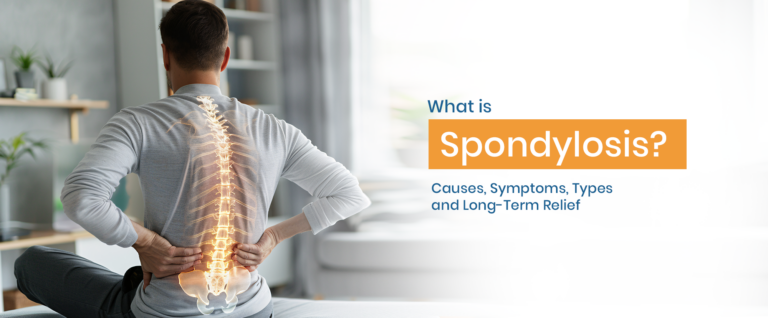A migraine is so much more than a headache. Individuals affected by migraines understand that migraines are not just bad headaches. It is a nervous system and brain disorder that causes severe headaches. Migraine pain is usually intense and may feel like something is pulsing or throbbing in the head. Additional symptoms like nausea and sensitivity to smell, light, and sound may also accompany migraine attacks. A combination of medicines and home remedies may help manage migraine symptoms effectively.
If you have migraine problem, then this article is for you. In this article, we will learn in detail about migraine, their types, causes, symptoms, treatments, and more. So, please stay with us till the end.
What is migraine?
A migraine is a chronic headache that causes a feeling of severe pulsing or throbbing pain, usually on one side of the head. These headache episodes of migraine may last for a few hours to even days in some cases (4 hours to 72 hours usually). In severe cases, migraine may affect the daily life of the patient, including their ability to work. Migraine is a neurological condition.
Migraine has different effects on different people. Not every person having migraine will be affected in the same way. The frequency of migraine, the severity of its symptoms, the triggers, the headache type, etc, will vary from one person to another. While some individuals with migraine may experience one episode every week, some may experience them occasionally.
Prevalence of migraine:
- A study published in 2023 found the migraine prevalence to be 14-15% in the current times.
- It was also found that 4.9% of global ill health that quantified as years lived with a disability were also accounted by migraine.
- As per reports by the World Health Organization (WHO), headache disorders have been found to be the 3rd highest of DALYs (disability-adjusted life years) on a global scale.
- As per reports by the World Health Organization (WHO), approximately 3.1 billion people were affecetd by headache disorders worldwide in 2021.
Types of migraine:
There are various types of migraine. However, the two most common types of migraine are migraine with aura and migraine without aura.
Certain individuals with migraine may experience both the types.
Migraine without an aura
A migraine without an aura is the most common type of migraine. In most cases, individuals with migraine don’t experience aura when they have a headache. People having migraine without an aura who have had at least 5 attacks that have the following experiences,
A migraine attack that has at least 2 of these symptoms,
- Pain that is throbbing or feels like pulsating
- Pain that occurs on one side of the head
- A pain that becomes worse as you move
- Pain with moderate to severe intensity
A migraine attack that has at least 1 of these symptoms,
- Photophobia or light sensitivity
- Phonophobia or sound sensitivity
- Nausea, with or without vomiting
A migraine attack that lasts between 4 to 72 hours
Migraine with aura
Individuals who have migraine with an aura experience at least 2 attacks and have the below-given symptoms,
- An aura that eventually goes away and is also reversible. This also includes at least 1 of the below-given symptoms,
- Sensory issues like numbness, dizziness, or tingling in the tongue, face, or body
- Language issues
- Speech problems
- Visual problems
- Trouble moving and weakness that may last for about 72 hours
An aura that has at least 2 of these,
- Aura symptoms lasting between 5 minutes to 1 hour, including speech, language or vision problems
- An aura that occurs around 1 hour before the actual attack starts
- Brainstem symptoms that include the following,
- Rining feeling in the ears or tinnitus
- Vertigo
- Inability to control the movements in the body
- Double vision or diplopia
- Trouble talking
- Eye problems like flashes of life, temporary blindness or blind spots in one eye
Other types of migraine include the following:
Chronic Migraine:
This is a type of migraine where an individual experiences severe headaches. In this condition, the patient has long-lasting migraine episodes. Chronic migraine may also make it difficult to continue basic tasks. Individuals who experience migraine attacks for more than 15 days in a month for 3 or more months have chronic migraine.
Menstrual migraine:
This is the type of migraine that occurs during menstruation, either before or during the period.
Silent Migraine:
It is a migraine that causes symptoms like numbness or tingling in hands, flashing lights, etc, without a headache.
Status Migrainosus:
This is the type of migraine where an attack lasts for more than 72 hours.
Hemiplegic migraine:
This is a rare type of migraine where individuals experience symptoms of migraine along with weakness in their muscles on one side of the body.
Retinal migraine:
Also known as ocular migraine, this type of migraine is the one where the affected individual experiences visual disturbances in one eye along with the headache.
Causes of migraine:
The exact migraine causes are not known yet, various migraine triggers may cause a migraine attack. These migraine triggers include the following,
- A family history
- Excessive stress
- Changes in the biometric pressure
- Extreme weather conditions like severe heat
- Dehydration
- Skipping meals
- Bright lights
- Hormonal changes during menstruation, menopause or pregnancy
- Loud noise
- Changes in sleep
- Experience with unusual smells
- Effect of certain medications like oral contraceptives
- Eating certain types of foods like foods with additives, aged cheese, etc
- Traveling
- Smoking and alcohol use
- Too much physical activity
Symptoms of migraine:
In many cases, the symptoms of migraine start to appear one to days before the actual headache. This phase is known as the prodrome phase. The various symptoms of migraine in this stage include the following,
- Depression
- Hyperactivity
- Stiffness in the neck
- Craving food
- Severe fatigue
- Irritation
- Yawning frequently
Individuals experiencing migraine with an aura. The aura happens after the prodrome stage ends. During migraine with an aura, individuals may experience symptoms like common
- A prickling, committing, or numbing sensation in the face, arms, and legs
- Difficulty in speaking clearly
- Seeing bright spots or light flashes
- Losing their vision temporarily
In the attack phase, which is the next phase after prodrome, The symptoms may last anywhere from a few hours to days. In this phase, the individual may experience the following symptoms,
- Increased sensitivity to light
- Nausea and vomiting
- Increased sensitivity to sound
- Pain on one side of the head
- Dizziness
- A pulsing or throbbing headache
Once the attack phase of migraine settles, the individual will experience the postdrome phase. In this phase, the individual will experience a mild or dull headache and mood changes.
How is migraine diagnosed?
To diagnose a migraine, your healthcare provider will first carry out a medical history examination and ask you about your medical history along with the symptoms you experience. They may also ask you about the various triggers that you may have noticed before experiencing a migraine. You will also be asked about the symptoms you are experiencing. Once the Doctor has all the information, they will provide a diagnosis.
Your healthcare provider may also conduct a few more tests. These tests include the following,
- Blood tests
- MRI scan
- CT scan
- Electroencephalogram (EEG)
Migraine Treatments:
There is no cure available for migraine. However, some medications can help with symptomatic management and reduce the frequency and severity of migraine. For migraine treatment, your healthcare provider may prescribe pain-relieving medications or medications to manage nausea and vomiting.
You can also take over-the-counter (OTC) pain relievers to reduce the headache.
How can migraine be treated with Homeopathy?
Homeopathic treatments only help relieve the symptoms and reduce the frequency of their occurrence. Homeopathy for migraine is an ideal treatment option as it not only reduces the symptoms of migraine but also boosts the body’s mechanism to heal on its own.
The holistic approach of homeopathy focuses on the individual as a whole and helps treat the root cause of any disease, including migraine. Depending on your personal case, a homeopathic doctor will provide individualized treatments for migraine that will help relieve symptoms like pain and nausea. Migraine homeopathic treatment can also help the body’s immune system become better and reduce the frequency of migraine attacks. Along with migraine prevention, another benefit of choosing homeopathy for migraine treatment is that it has minimal to no side effects.
At Dr.Care, you will find the best homeopathic doctors, who have years of experience and are experts in treating migraine. Our Homeopaths will conduct a proper diagnosis for your condition and prescribe the best homeopathic medicines and homeopathic remedies for migraine pain. At Dr.Care, our focus is on prioritizing your long-term health rather than your short-term relief. If you are looking to get treated for migraine pain through homeopathy, you can contact our team.
Home remedies to treat Migraine:
Various home remedies may help relieve the symptoms of migraine and prevent the next episodes. Some of the home remedies that you can try to relieve migraine symptoms at home include the following,
- Applying an ice pack
- Using warm compression
- Avoid foods like processed meat, chocolates, caffeine, and alcohol
- Using essential oils like peppermint, lavender, basil and chamomile
- Practicing stress management techniques like meditation, breathing exercises, sitting a dark and quiet place
- Avoiding caffeine consumption
- Hydration
- Soaking feet in hot water
- Getting some sleep
- Getting massage
How do we prevent migraine attacks?
If your healthcare provider has diagnosed you with migraine, then there are several ways through which you can prevent a migraine attack. These preventive measures for a migraine attack include the following,
- Find out your triggers. Foods and smells that may trigger an attack, and then avoid those triggers.
- Find out situations that may trigger your attack and avoid them.
- Focus on getting a good quality sleep.
- Reduce the stress you take. Practice stress management techniques like deep breathing, meditation, listening to podcasts, etc.
- Get your hydration right. Stay hydrated at all times. Drink water as much as possible.
- Avoid skipping your meals and eat nutritious meals.
- Quit smoking.
- Avoid alcohol.
- Exercise regularly to reduce stress. Avoid intense exercising if it is your migraine trigger.
Complications of migraine:
Certain complications may occur due to migraine. Some of these complications of migraine include the following,
- Status migrainous
- Gastrointestinal problems
- Prolonged headaches
- Migrainous infarction
- Migralepsy
- Persistent aura without infarction
- Stroke
- Mental health conditions such as panic disorder, anxiety disorder, bipolar disorder and depression
- Benign paroxysmal vertigo
- Medication overuse headache or a rebound headache
- Serotonin syndrome
Conclusion
Migraine is more than just normal headaches. They can cause severe throbbing pain affecting the side of the head. Migraine can also cause aura in some patients. Nausea, vision changes, irritability, and fatigue are some common symptoms associated with migraine attacks. While the causes of migraine remain unknown, several factors can act as migraine triggers. Homeopathic treatments offer good solutions for migraine relief. Homeopathy focuses on improving overall health, addressing the root cause of the migraine attack, and providing symptomatic relief. Dr.Care Homeopathy offers the best solutions for all diseases and disorders, including migraine. Our team of homeopathic Doctor helps with both diagnosis and personalized treatments based on homeopathy remedies. To get your healing journey started with homeopathy, contact the Dr.Care team today.



